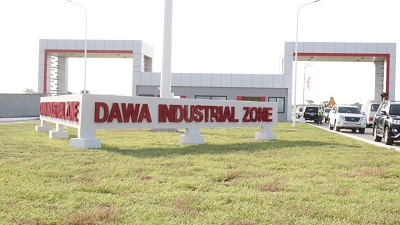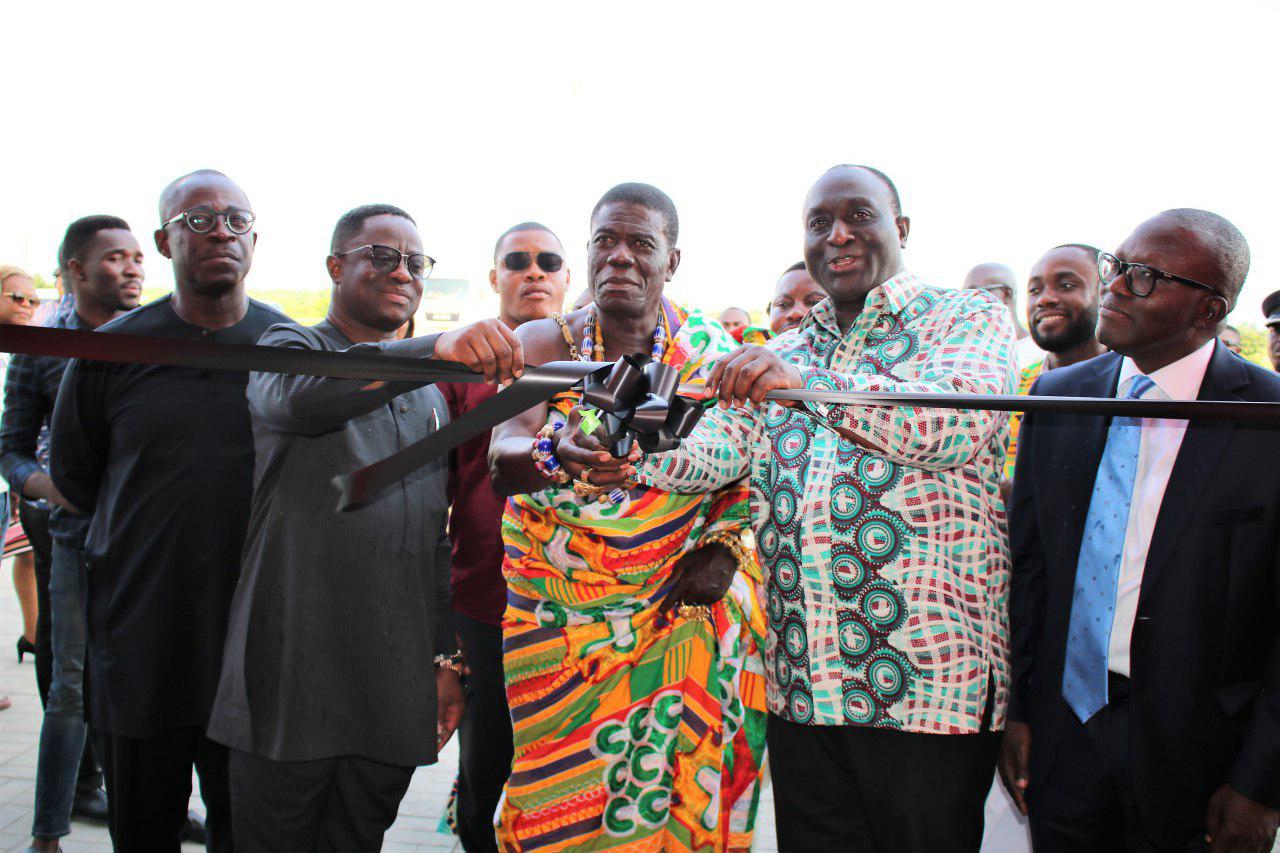
Dawa Industrial City is born
Ghana’s quest to leverage the private sector to drive the country’s agenda of becoming the hub of industrial activity in West Africa took a step farther with the inauguration of the Dawa Industrial City and Power Sub-station at Dawa, a town in the Ningo-Prampram District in the Greater Accra Region, last Wednesday.
The Dawa Industrial City, an initiative of the Dawa Industrial Zone Limited, a wholly owned subsidiary of LMI Holdings, will serve as an industrial park for manufacturing companies.
Advertisement
Sitting on an initial 2,000-acre land, the city has a broad ecosystem of industrial and residential development, all designed to drive Ghana’s industrial development.
For the Dawa Sub-station, it is a 300-acre energy park designed to host power plants and petroleum tank farms. It has a purpose-built single point mooring for offloading light crude oil, finished petroleum products and natural gas.
It also comes with a 350-kilovolt (KV) electricity sub-station at a cost of $30 million which presently supplies some 132MVA electricity being made available to some 120 industrial and commercial customers within the Dawa Free Zones area.
The park is also expected to tie into the Bulk Oil Storage and Transportation (BOST) gas transmission infrastructure once available, as well as GRIDCo’s 330KV transmission network.
The dual project was jointly inaugurated by the Minister of Trade and Industry, Mr Alan Kyerematen, and the Minister of Energy, Mr John Peter Amewu

The acting President of the Ningo Traditional Area, Nene Kanor Atiapa III (middle), assisting Messrs Kyerematen (2nd right) and Amewu (2nd left) to cut the tape to officially open the Dawa Industrial City. With them are Mr Kojo Aduhene (right), the Chairman of LMI Holdings, and Mr William Owuraku Aidoo (first left), the Deputy Minister of Energy in charge of Power. Picture: DELLA RUSSEL OCLOO
New agenda
Addressing the gathering, Mr Kyerematen said the government was seeking to use the new industrialisation agenda being undertaken in partnership with the private sector to create job opportunities for the thousands of graduates produced by the tertiary institutions every year.
According to him, the public sector, which presently employs about 600,000 people, did not have the capacity to employ the huge number of graduates coming out every year at a time, for which reason the government required new strategies to address the challenge of unemployment.
Mr Kyerematen was of the view that the operation of the Dawa Industrial Zone facility was in response to one of the most critical challenges confronting the country in terms of development.
He maintained that while industrial zones played a key role in the economic improvement of nations, the Dawa zone was offering access to infrastructure and related facilities comparable to any of such industrial parks in the world.
“The superlative growth of China and other Asian countries was because they took deliberate efforts and planning to become factories of the world and we in Ghana are optimistic that this new project will go to generate employment for Ghana’s idle labour,” he stated, adding that the project was not to benefit only LMI Holdings but one that would stimulate economic activities in Dawa and its surrounding communities.

Mr Nobert Anku (hand raised) CEO of Enclave power briefing the two Ministers, Mr John Peter Amewu and Mr Allan Kyeremanteng and some dignitaries at the control room of the new power substation. Picture: DELLA RUSSEL OCLOO
Development Partners
The minister announced that the United Kingdom Department for International Development (DFID), under its Jobs and Economic Development project, was commiting £20 million to support Ghana’s industrial development goals.
Similarly, the World Bank was investing $75 million to support the development of industrial parks in parts of the country, he added.
He intimated that the government was willing to provide an enabling environment for institutions and individuals willing to undertake ventures under the aforementioned projects.
Energy Minister
Mr Amewu, who represented President Nana Addo Dankwa Akufo-Addo, said the government had, since assuming power in 2017, taken measures to deal with both the financial and the technical challenges within the country’s power production and supply chain.
He stressed that significant efforts had been made to make the power sector reliable and affordable to people wishing to invest in the country.
Presently, he said, there were ongoing arrangements to renegotiate all power purchase agreements to make sure they reduced the burden on the government and ensured affordable power for industrial use.
“While working on the power generation aspect, we are equally relooking at the gas pricing for power generation in order to affect the tariffs positively,” he stressed.
Mr Amewu commended LMI Holdings for driving growth in the private sector and urged the company to maintain high standards in its operations.
Enclave Power
The Chief Executive Officer (CEO) of Enclave Power, Mr Nobert Anku, in his welcome address, stated that many Free Zones companies that were producing for export were folding up owing to high electricity tariffs.
He said the attraction of production firms into the free zones enclave had seen a massive reduction owing to the huge tariff disparity as compared to rates available to local entities.
“This disparity is so huge, thereby making already existing companies not willing to expand, while some have also relocated their operations to other countries within the West African sub-region,” he said.
He called on the government to, as a matter of urgency, streamline the industrial tariff processes to ensure mutual benefits for the country and the companies.